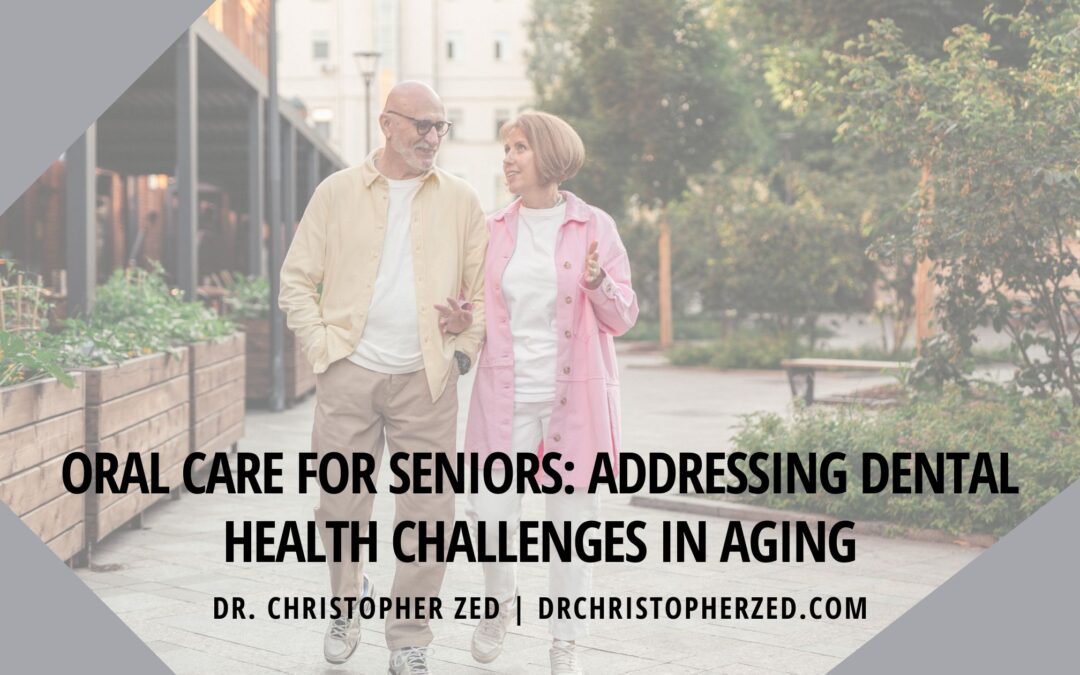As we age, oral care becomes increasingly important. Seniors often face unique dental health challenges that require specific attention and care. These challenges can include dry mouth, gum recession, tooth wear, and various medical conditions that impact oral health.
Regular Dental Check-ups and Cleanings
One of the most critical aspects of oral care for seniors is regular dental check-ups and cleanings. Our risk of dental issues increases as we age, making these visits crucial for early detection and prevention. Dentists can identify problems like cavities, gum disease, and oral cancer early, allowing for more manageable and less invasive treatments.
During these visits, your dentist will also thoroughly clean to remove plaque and tartar buildup, which can contribute to gum disease and tooth decay. Ideally, seniors should have dental check-ups at least twice a year, although your dentist may recommend more frequent visits if you have specific dental health concerns.
Proper At-Home Oral Care
In addition to regular dental check-ups, seniors should maintain proper at-home oral care practices. Here are some essential guidelines:
- Brush your teeth: Brush your teeth at least twice daily with fluoride toothpaste. Use a soft-bristle toothbrush to avoid damaging your gums and teeth, especially if you have gum recession. Be gentle but thorough to remove plaque and food particles effectively.
- Floss daily: Daily flossing is crucial to removing plaque and debris between teeth. This helps prevent cavities and gum disease. If traditional flossing is challenging, consider using floss picks or a water flosser, which can be a more senior-friendly option.
- Mouthwash: An antimicrobial or fluoride mouthwash can complement your oral care routine by reducing bacteria and strengthening tooth enamel.
Manage Dry Mouth
Dry mouth is a common issue for seniors and can be caused by various factors, including medications and medical conditions. A dry mouth can increase the risk of cavities and gum disease. To manage dry mouth:
- Stay hydrated: Drink plenty of water throughout the day to help keep your mouth moist.
- Sugar-free gum or lozenges: Chewing or using sugar-free gum can help stimulate saliva production.
- Artificial saliva products: Consider using artificial saliva products, available in various forms like sprays, gels, and rinses, to maintain moisture in your mouth.
Balanced Diet
A well-balanced diet is vital for your overall health and plays a significant role in maintaining good oral health. As a senior, it’s essential to:
- Eat plenty of fruits and vegetables, providing essential vitamins and minerals supporting oral health.
- Limit sugar intake, as sugar can lead to tooth decay. Be mindful of hidden sugars in processed foods and sugary beverages.
- Avoid acidic foods and beverages that erode tooth enamel, such as carbonated drinks and citrus fruits.
Denture Care
Many seniors wear dentures, and proper denture care is crucial for both oral health and comfort:
- Clean your dentures daily with a denture brush and a mild denture cleaner. Do not use regular toothpaste, as it can be abrasive.
- Remove your dentures at night to allow your gums to rest and heal.
- Check for any signs of damage or wear and have them adjusted or replaced.
Conclusion
Good oral care is essential for seniors to address aging-associated dental health challenges. By following these five tips, including regular dental check-ups, proper at-home oral care, managing dry mouth, maintaining a balanced diet, and taking care of dentures when applicable, seniors can enjoy a healthier and more comfortable smile in their golden years. Remember, a beautiful smile can brighten your day at any age and continue to shine with proper care.

